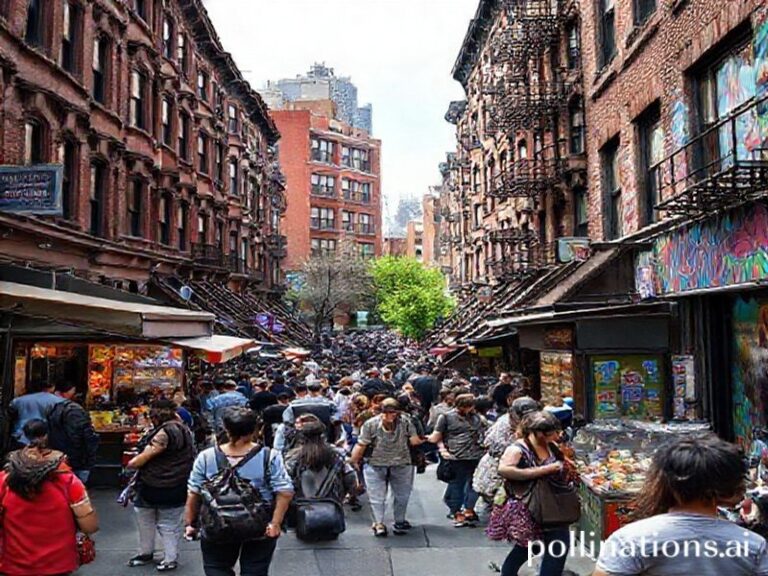Carlos Vives: The Colombian Export More Addictive Than Coffee and Less Regulated Than Cocaine
SANTA MARTA, Colombia – On a recent Tuesday that smelled faintly of sea salt and impending recession, Carlos Vives stood on the same Caribbean shore where Spanish galleons once ferried stolen gold and syphilis to the wider world. The Colombian singer was launching yet another “Vives Tour,” a planetary caravan that will soon disgorge accordions and optimism in Madrid, Mexico City, and, for reasons known only to festival bookers, rural Finland. To the untrained eye it looks like a standard pop-circus: confetti cannons, corporate logos, the ritualized surrender of dignity at the VIP barrier. But to the geopolitically caffeinated observer, the man is exporting something far trickier than earworms: the illusion that rhythm can still beat bureaucracy.
Vives’ signature vallenato-pop fusion—equal parts ancestral lament and Spotify playlist bait—now serves as a soft-power Trojan horse for a country that spent decades being synonymous with slightly more kinetic exports. While ambassadors sweat through security councils, Vives simply sings about stray dogs and heartbreak and watches visa queues lengthen in the other direction. Call it cultural narcotráfico: instead of powder, he smuggles hope cut with nostalgia. The purity is questionable, but the street value is spectacular.
Europe, grappling with the slow-motion implosion of its own union, has responded with the fervor of the recently dumped discovering salsa lessons. French bureaucrats who can’t agree on agricultural subsidies manage to coordinate flash mobs to “La Bicicleta.” German engineering students, supposedly too busy building the next recession, have begun 3-D-printing guacharaca shells in dorm basements. The continent’s subconscious seems relieved to import problems small enough to dance to.
Asia’s consumption is even more telling. In Seoul, K-Pop trainees rehearse vallenato footwork between sessions of plastic-surgery rehab. Tokyo karaoke booths now list “Fruta Fresca” right after “Bohemian Rhapsody,” a juxtaposition that would give Freddie Mercury a contact high from the afterlife. The Japanese, connoisseurs of borrowed cool, appreciate that Vives’ music contains the one ingredient domestic pop lacks: unprocessed joy. It’s nostalgia for a childhood they never lived, sold back to them at arena mark-up.
Meanwhile, the United States treats Vives like an acceptable Latin American: fluent in English, devoid of manifestos, and willing to smile for Apple Music thumbnails. Washington lobbyists who can’t locate Colombia on an unlabeled map nevertheless know that a Vives cameo at a climate gala buys Instagram absolution. Greta Thunberg scowls; Carlos strums; emissions rise, but at least they rise on beat.
Back home, the symbolism grows heavier than a tour bus full of baritone tubas. Colombia’s government—currently juggling peace accords, coca subsidies, and a president who appears to govern via TikTok—has adopted Vives as unofficial minister of morale. Every overseas ticket sold is tallied like a microloan to the national psyche. The finance ministry even ran a regression analysis proving that each “Cumbia de la paz” played in Toronto correlates with 0.7 fewer think-pieces about cartels. Statistical voodoo, yes, but cheaper than helicopters.
Of course, the cynic will note that cultural booms age about as well as unpaid roadies. Yesterday’s Buena Vista Social Club is today’s background music for cruise-ship buffets. The risk is that vallenato becomes the new reggaeton: stripped of context, rinsed of soul, and repurposed to soundtrack detergent ads. Vives, ever the businessman beneath the linen shirt, has already hedged: he’s selling limited-edition vinyl, scented candles, and—because late capitalism abhors a vacuum—an artisanal aguardiente that pairs nicely with existential dread.
Still, it’s hard not to applaud the sheer gall of monetizing resilience. While the planet debates carbon credits and border walls, Vives proposes we solve geopolitical angst by turning it into a four-on-the-floor rhythm section. Naive? Certainly. More effective than the UN Security Council? Jury’s out. For now, the world lines up, wristbands ready, eager to pay $120 to forget that the tides are rising and the accordions are slightly out of tune. And somewhere in the dark, the ghost of Gabriel García Márquez lights a cigarette, muttering that magical realism was always just journalism with a better soundtrack.







